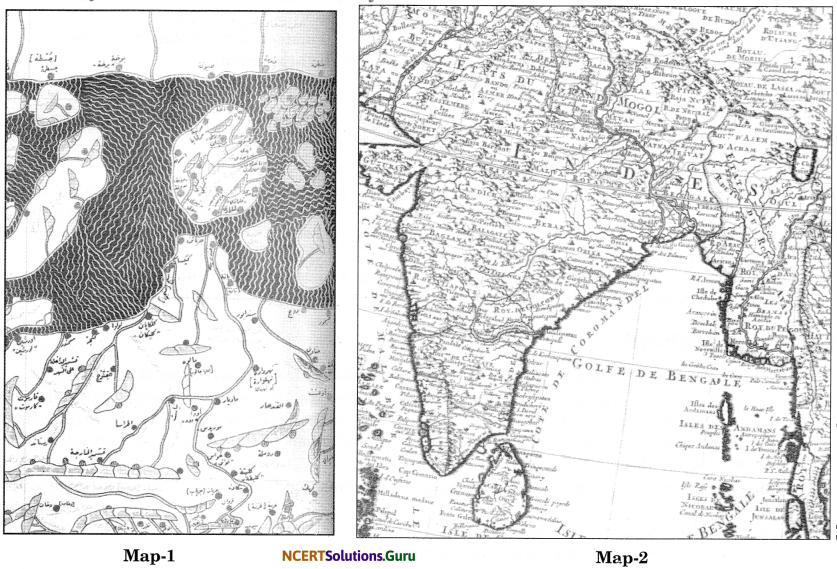Tracing Changes Through a Thousand Years Class 7 Questions and Answers Provided helps you to answer complex Questions too easily. You can use them while preparing for board exams and all of them are given by subject experts. Reading NCERT Solutions for Class 7 Social Science History Chapter 1 Tracing Changes Through a Thousand Years familiarizes you with the kind of questions appearing in the board exams. Students are advised to read these solutions on a regular basis to score well.
Tracing Changes Through a Thousand Years Class 7 Questions and Answers History Chapter 1
Make your learning experience enjoyable by preparing from the quick links available on this page. Use the Class 7 SST History Chapter 1 NCERT Solutions and get to know different concepts involved. All the Solutions are covered as per the latest syllabus guidelines. Knowing the NCERT Class 7 History Chapter 1 Questions and Answers helps students to attempt the exam with confidence.
Class 7 History Chapter 1 NCERT Textbook Questions and Answers
Let’s Recall
Question 1.
Who was considered a “foreigner” in the past?
Answer:
In the medieval period ‘foreigner’ was considered as a person who was not a part of any particular society or culture. In this sense a forest-dweller was a foreigner for a city-dweller. Later, the word ‘foreigner’ was considered as a person who is not a resident of a country.
![]()
Question 2.
State whether true or false.
(а) We do not find inscriptions for the period after 700.
(b) The Marathas asserted their political importance during this period.
(c) Forest-dwellers were sometimes pushed out of their lands with the spread of agricultural settlements.
(d) Sultan Ghiyasuddin Balban controlled Assam, Manipur and Kashmir.
Answer:
(a) False
(b) False
(c) True
(d) False
Question 3.
Fill in the blanks.
(a) Archives are places were________ are kept.
(b) _______________ was a fourteenth-century chronicler.
(c) ______ ,_______ ,______ ,_______ and_______ were some of the new crops introduced into the subcontinent during this period.
Answer:
(a) Manuscripts
(b) Ziyaudding Barani
(c) Potatoes, corn, chillies, tea, coffee.
Question 4.
List some of the technological changes associated with this period.
Answer:
Technological changes associated with this period were as follows:
- Persian wheel in irrigation
- Spinning wheel in weaving
- Firearms in combat.
![]()
Question 5.
What were some of the major religious developments during this period?
Answer:
During this period, important changes occurred in Hinduism along with the emergence of Islam. Hinduism included the worship of new deities, the construction of temples by royalty and the growing importance of Brahmans, the priests, as dominant groups in society. One of the major developments of this period was the emergence of the idea of Bhakti.
In 7th century, merchants brought teachings of Islam as well as Quran. Muslims regard the Quran as holy book and accept the sovereignty of the God. Many rulers were patrons of Islam.
Let’s Understand
Question 6.
In what ways has the meaning of the term “Hindustan” changed over the centuries?
Answer:
First of all, the term Hindustan was used by Minhaj-i-Siraj in 13th century, a Persian chronicler. He meant the areas of Punjab, Haryana and the lands between the Ganga and Yamuna. He used the term in a political sense for lands that were a part of the dominions of the Delhi Sultan but term never included south India.
Babur used Hindustan to describe the geography, the fauna and the culture of the inhabitants of the subcontinent.
In the 14th century poet Amir Khusrau used the word “Hind”. Hindustan did not carry the political and national meanings which we associate with it today.
Question 7.
How were the affairs of jatis regulated?
Answer:
As society became more differentiated, people were grouped into jatis or sub-castes and ranked on the basis of their backgrounds and their occupations. Ranks of jatis were not fixed permanently and varied according to the power, influence and resources controlled by members of the jati. The status of the same jati could vary from area to area. Jatis framed their own rules and regulations to manage the conduct of their members.
Question 8.
What does the term pan-regional empire mean?
Answer:
The term pan-regional means spanning or covering diverse regions. There was considerable conflict between the states. Occasionally dynasties like the Cholas, Khaljis, Tughluqs and Mughals were able to build an empire that was pan-regional.
Let’s Discuss
Question 9.
What are the difficulties historians face in using manuscripts?
Answer:
In using manuscripts, the main difficulty faced by historians is non-similarity in the manuscripts written even after a small gap. In the absence of printing press, scribes copied manuscripts by hand. They also introduced small changes-a word, a sentence. These small differences grew over centuries of copying until manuscripts of the same text became substantially different from one another.
![]()
Question 10.
How do historians divide the past into periods? Do they face any problems in doing so?
Answer:
Historians divide the past into periods on the basis of shared characteristics. The difficulties they faced are that mostly the divisions cannot be taken into account all significant developments in the economy, society or culture.
Let’s Do
Question 11.
Compare either Map 1 or Map 2 with the present-day map of the subcontinent, listing as many similarities and differences as you can find.

Hope the data shared above regarding the NCERT Class 7 Social Science History Chapter 1 Tracing Changes Through a Thousand Years PDF has aided in your exam preparation. If you ever need any assistance you can always reach us and our team will guide you at the soonest possibility.